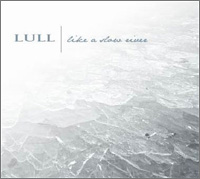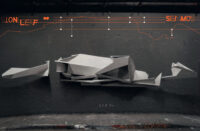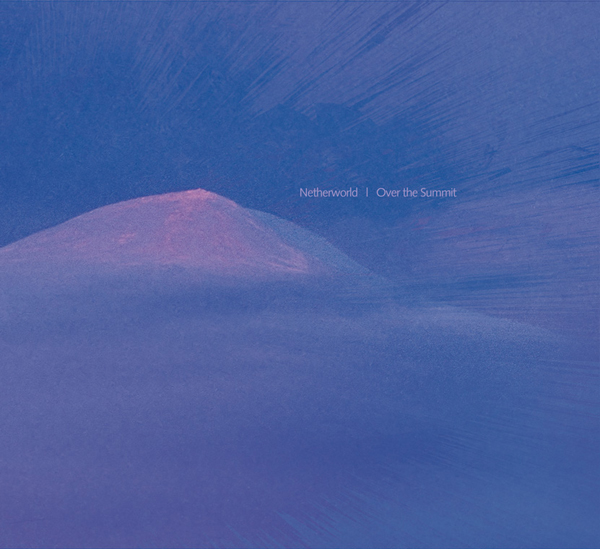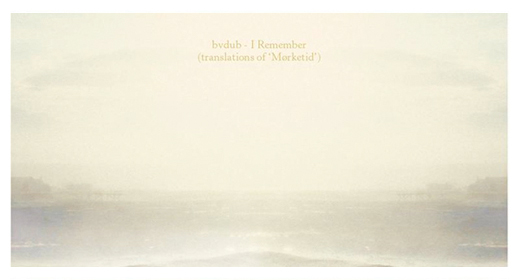 (07.08.08) Mick (MJ) Harris, once known for a seemingly unlikely transmigration of the musical soul from death metal to isolationist ambient, is back, after a lull, appositely, as Lull. By now Harris has attained a hallowed place in the canon of Dark Ambient, alongside the likes of Lustmord and Thomas Köner. In terms of the foundations of a sub-genre, these last-mentioned were the ones who did the heavy digging work, with Harris arriving late to benefit from a ferment of industrial-ambient and dark-drone activity in the early-90s. In fact Harris, for all his accumulated kudos, was no great pioneer, the true founder of this inverted church being Brian “Lustmord” Williams, the true High Priest of Isolationist Rituals, who was fully forged in the UK industrial flame of the early 80s. In terms of input, being brutal, a tendency he would be familiar with as ex-Napalm Death merchant, Harris brought little to the sounding table other than a mimetic ear for the spooked and the downright desolate, sprung from a harsh audio-sensibility allied to a soundscaping skill which enabled him to find something aesthetically pleasing in the deepest and darkest recesses of the Muse’s expression, most clearly seen on 1994’s isolationist classic, Cold Summer.
(07.08.08) Mick (MJ) Harris, once known for a seemingly unlikely transmigration of the musical soul from death metal to isolationist ambient, is back, after a lull, appositely, as Lull. By now Harris has attained a hallowed place in the canon of Dark Ambient, alongside the likes of Lustmord and Thomas Köner. In terms of the foundations of a sub-genre, these last-mentioned were the ones who did the heavy digging work, with Harris arriving late to benefit from a ferment of industrial-ambient and dark-drone activity in the early-90s. In fact Harris, for all his accumulated kudos, was no great pioneer, the true founder of this inverted church being Brian “Lustmord” Williams, the true High Priest of Isolationist Rituals, who was fully forged in the UK industrial flame of the early 80s. In terms of input, being brutal, a tendency he would be familiar with as ex-Napalm Death merchant, Harris brought little to the sounding table other than a mimetic ear for the spooked and the downright desolate, sprung from a harsh audio-sensibility allied to a soundscaping skill which enabled him to find something aesthetically pleasing in the deepest and darkest recesses of the Muse’s expression, most clearly seen on 1994’s isolationist classic, Cold Summer.
And so to Like A Slow River, an atonal orchestration of sussurating and wheezing ebb and flow and rumblings of submarine currents beneath an ice-bedecked surface. Low-end eddies churn at bathyscape depths while the surface is perturbed with the sound of fissures forming and ice turning to meltwater. The music is unrelenting in its dronal creed, but Harris weaves movement into his slabs and wedges of sound, with arcing dives and slow falls inward effectively articulating a slow drift into the abyss. The topography depicted is desolate and bleak, rendered in tones unmoored from any harmonic or rhythmic referents, but Lull’s sombre drone diaries are possessed of a kind of blasted heath cruel beauty. Five variations on a theme are rolled out, all forged with deep bass surges and eerie mid-range tonalities, distinction being created through the differing configurations of its sounding sources, varying resonances, modulations and vibrations, and shifts in cadence and timbre. Some tend more toward evacuated space (“Whiteout” and “The Sheet”), while others inhabit more alien zones (“Treeless Grounds” and “Illusion Of Unbroken Surface”).
Like A Slow River is, ultimately, not so much an ambient album in the Eno tradition, but rather a softer reined-in extension of the industrial power electronics tradition, its sounds at times liminal, at times subsonic, almost tailor made to the motivating philosophy behind the doom-laden drift of Glacial Movements. Head Glacial Mover, Alessandro Tedeschi, claims a wider remit than the simply musical for GM, aiming to do his bit to help protect the Arctic and Antarctic areas by raising awareness of their gradual effacement through musical mediation, and more power to his environmental elbow. Some might see the conceptual programme as musically limiting but, like the many and subtly different Mozart symphonies or Bach fugues, it could equally be seen as a suggestive overarching theme driving many interpretations. So far, at least, it has given rise to several quite different takes – from Rapoon, Oophoi, and Tedeschi’s own Netherworld. And Lull’s addition is certainly on a par with these, and this work rivals those of his mentors, Lustmord and Köner, in the power of its dark poesis.
Like A Slow River is out now on Glacial Movements. [Purchase]
























